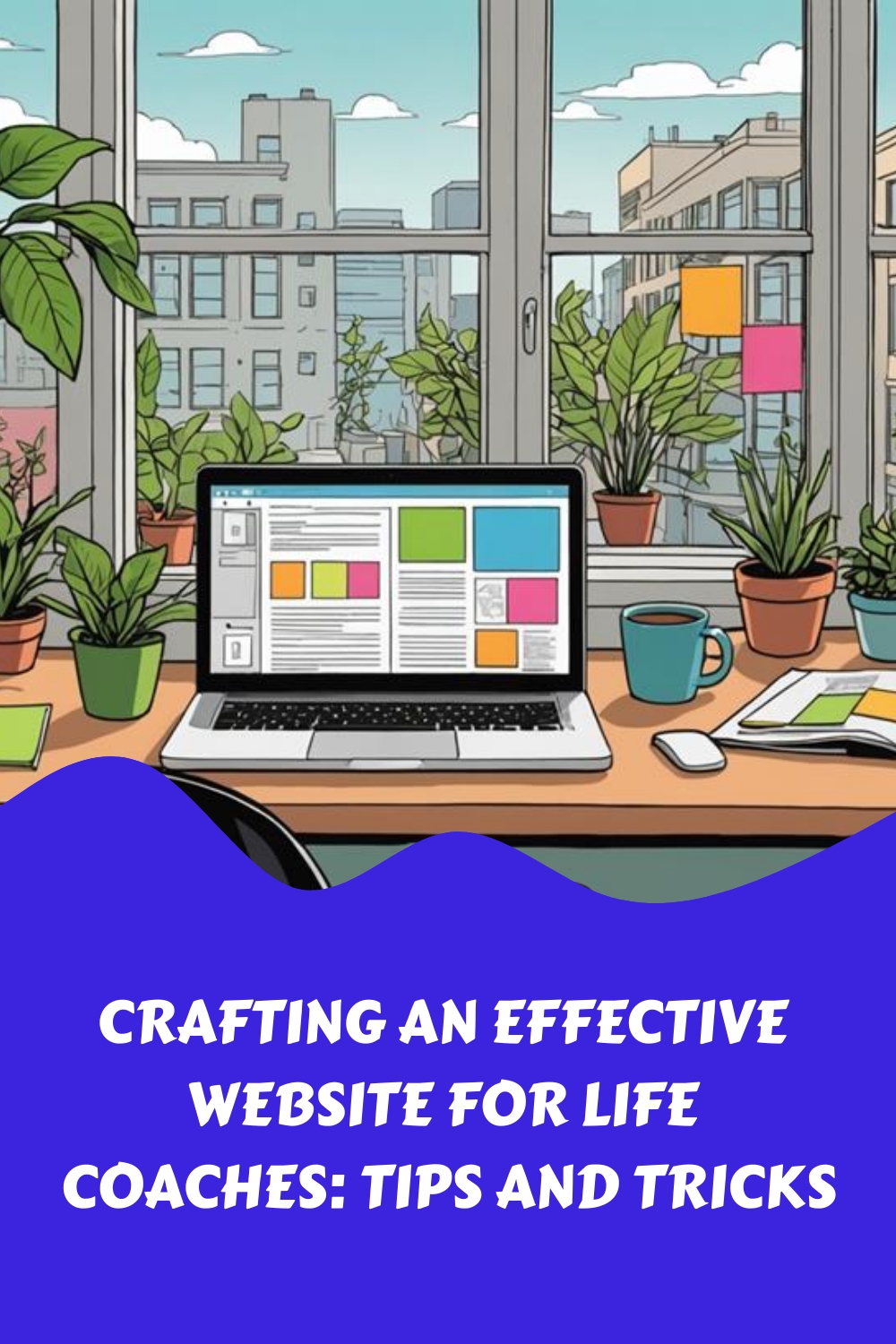
Crafting an effective website for life coaches is essential for connecting with your clients. Start with quality content that addresses their pain points, making it relatable. Use storytelling to create a genuine bond. Incorporate tools like Calendly for easy scheduling, and add testimonials to build trust. A clean design keeps users engaged, while consistent branding boosts credibility. Regularly update your content to reflect your journey and services. Don't forget clear calls-to-action, as they encourage visitors to take the next step. This approach not only helps attract clients but also keeps them coming back, leading to greater success in your coaching journey.
Key Takeaways
- Create high-quality content that addresses client pain points and incorporates storytelling to foster connection and engagement.
- Utilize tools like Calendly for streamlined scheduling and offer tailored freebies to attract potential clients.
- Build trust by sharing personal stories, displaying testimonials, and maintaining transparency in pricing and expectations.
- Ensure a clean, user-friendly design with consistent branding and high-quality visuals to enhance professionalism and appeal.
- Regularly update content, perform maintenance checks, and analyze website performance to improve user experience and SEO rankings.
Importance of Quality Content

Quality content is essential for any life coach's website, and it can make or break your online presence. When you focus on creating an engaging website, you directly address your visitor needs. By writing about their pain points, you build a closer bond with potential clients. Instead of just talking about your coaching services, share stories that resonate with them. Additionally, consider incorporating engagement-driven blog content that can enhance your SEO performance and attract more visitors to your site.
Incorporating storytelling elements can create emotional connections that enhance the likelihood of conversion. People love to hear stories; it makes your message more relatable and memorable. Plus, integrating testimonials and case studies adds social proof, reinforcing your credibility. When visitors read about real-life experiences, they're more likely to trust your abilities as a coach.
Don't forget to keep your content fresh by regularly updating your site with valuable articles and resources. This not only showcases your expertise but also boosts your search engine rankings, making it easier for new clients to find you. Quality content truly has the power to transform your website into a welcoming space that invites exploration. By focusing on these elements, you can create a website that stands out and connects with your audience
Engaging Client Interaction Tools
Creating a seamless experience for your clients involves leveraging engaging interaction tools that facilitate communication and scheduling. When you use tools like Calendly, you can streamline client interactions. This means less back-and-forth in emails and easier ways for potential clients to schedule calls based on your availability. It's super helpful!
You can also attract your ideal clients with free digital resources, like downloadable guides or eBooks. These serve as effective lead magnets, drawing in clients while collecting their email addresses for future communication. Imagine how great it feels to connect with people who are genuinely interested in your life coaching services!
Automated notifications and reminders can enhance client organization, ensuring appointments aren't missed. This boosts the overall experience for your clients, which is what you want! Additionally, offering tailored freebies that resonate with your audience's preferences can greatly increase engagement on your website.
Strategies for Building Trust

Trust is essential in establishing a successful coaching relationship. To build trust on your coaching website, start by sharing your story. When clients see your journey, they can relate to you, making them feel more comfortable. Incorporating testimonials is another powerful strategy. Did you know that 72% of consumers trust online reviews as much as personal recommendations? Showcasing these can reinforce the effectiveness of your services.
Transparency is key. Clearly outline your pricing and what clients can expect. When people know what they're getting into, it helps them make informed decisions. You should also include clear calls-to-action, like inviting visitors to schedule a free consultation. This boosts conversion rates considerably, making it easier for potential clients to engage further with you.
Lastly, don't forget about nurturing relationships through automated welcome emails. These emails keep the conversation going and help maintain connections with leads, enhancing their overall experience with your coaching. By implementing these strategies, you'll create an environment where clients feel valued and understood, leading to stronger relationships and successful coaching journeys.
Effective Design and Branding
Your coaching website's design and branding can greatly impact how potential clients perceive you and your services. To create the best website design, start with a clean, easy-to-navigate layout. Remember, 70% of users prefer sites that let them find information quickly. This makes it essential to value upfront and clearly say what you offer. Your target audience should feel comfortable when they visit your site.
Consistent branding across all pages reinforces your identity and professionalism. Use the same colors, fonts, and images to create a cohesive visual theme. High-quality visuals matter too; studies show that 92.6% of consumers judge a business based on its visual appearance. So, invest in professional images that reflect your coaching style.
Consider color psychology as well. Different colors can evoke emotions that resonate with your audience, positively influencing their perceptions. Finally, don't forget effective CTAs. Clear and compelling calls-to-action guide visitors toward the desired actions, boosting your conversion rates by 121%. By focusing on these design elements, you'll create a welcoming space that encourages potential clients to connect with you.
Ongoing Website Management

For a successful coaching website, ongoing management is vital to keep your content fresh and relevant. Regularly updating website content not only reflects your evolving coaching strategies but also boosts your SEO rankings, making it easier for potential clients to find you. Plus, it enhances user engagement, which is essential for your coaching business.
Backing up website files consistently is another key part of effective website management. You want to safeguard your client information and prevent any data loss. Imagine losing everything due to a technical glitch!
Don't forget to analyze website analytics periodically. This helps you understand user behavior and make informed decisions for improvements, optimizing user experience and boosting conversion rates. Implementing self-editing capabilities means you can quickly update business information without needing a web designer.
Lastly, schedule routine maintenance checks. This guarantees your website functions smoothly, addressing any technical issues promptly. A seamless user experience keeps visitors happy and encourages them to reach out. By focusing on these ongoing website management tasks, you'll create a thriving online presence that supports your coaching business and connects with clients effectively.
Frequently Asked Questions
How Do You Structure a Coaching Website?
To structure your coaching website, focus on website navigation design, service description clarity, and call to action placement. Integrate client testimonials and personal branding elements while ensuring SEO optimization techniques and mobile responsiveness for ideal user experience.
What Should Be on a Life Coach Website?
Your website should shine like a beacon, showcasing your coaching philosophy, services offered, and session rates. Include client testimonials, certifications displayed, engaging blog content, and guarantee smooth appointment scheduling for an exceptional user experience.
What Are the Best Colors for a Life Coaching Website?
For your life coaching website, consider using blue for trust, green for growth, and warm colors for optimism. Prioritize design consistency, accessibility, and audience preferences to create impactful color combinations and enhance your brand's visual hierarchy.
How Do I Market Myself as a Life Coach?
Think of your brand as a lighthouse, guiding your target audience. Define your value proposition through client testimonials, leverage social media for content marketing, explore networking opportunities, and offer online courses and email campaigns to showcase your niche specialization.
Final Thoughts
In the end, building a great website for your life coaching practice isn't just about looking pretty—it's about connecting with people. Think of it as your digital handshake! Sure, you could throw up some random text and call it a day, but wouldn't you rather have a site that truly reflects your passion? So, roll up your sleeves, embrace the challenges, and remember: a well-crafted website can be your best friend in helping others find their path!
- Why Your Brand Identity Matters Online - 11/11/2025
- Writing Content That Converts Visitors Into Customers - 04/11/2025
- How to Plan a Content Calendar That Works - 29/10/2025




